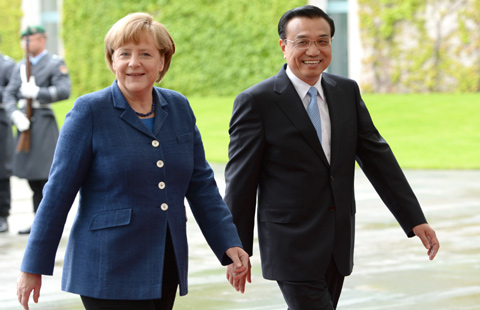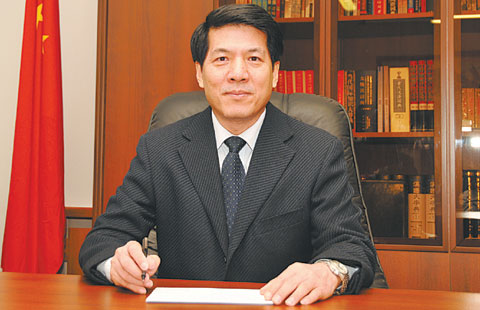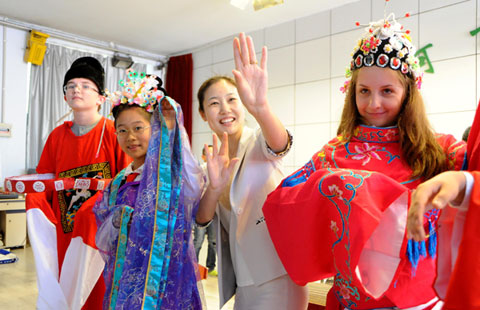A few choice words boost Sino-Russian relations
With the development of Sino-Russian relations, the need for talented linguists is increasing in both countries, according to a professor at China's top foreign study university.
There was a time in the 1960s when almost every Chinese student chose Russian as their first foreign language and now Chinese has become popular among young students in Russia, the largest country in the world.
"Reasons Chinese started to fascinate Russians are obvious", said Professor Dai Guiju, director of the Russian Center at Beijing Foreign Study University. "Prices in big Russian cities have been rising continuously since 1991 due to political factors and inflation, therefore a large number of Russians would like to learn Chinese so they can work and live in China".
Traditional culture is another factor driving Russian youngsters to learn Chinese in school, she added.
There are 18 Confucius Institutes in major Russian universities and the number is increasing.
Dai said: "We are glad to see more Russians studying Chinese. On one hand, the phenomenon represents the great influence of China on Russia, on the other, we can tell China has gained economic strength and has assumed international status".
Guan Changfu, a master at Heihe University, said they have helped build the Confucius Institute in Blagoveshchensk State Pedagogical University in Russia.
"With the help of Confucius Institutes, lots of Russian students who chose Chinese as their major can speak the language perfectly," said Guan. "By spreading and promoting Chinese, Russian people can know about China more directly and more comprehensively".
Even though Russian is no longer the first choice for Chinese students, the need for Russian speakers remains. According to statistics from the Beijing Foreign Study University, apart from government sectors, the lack of fluent Russian speakers has become a problem for state-owned enterprises and research institutes.
Data reveals that due to gas-line and military cooperation contracts signed during Russian President Vladimir Putin's visit to China earlier this year, as well as deeper bilateral economic cooperation and the on-going 2014-2015 China-Russia Youth Friendly Exchanges Year, the requirement for graduates majoring in Russian this year has reached a peak.
Dai emphasizes that language learning plays significant roles in bilateral relations and economic activities.
There are 137 universities in China offering Russian language courses, but less than 20,000 students majoring in the language, among which only a minority can speak it fluently, said Dai.
Guan added that the trend toward global economic integration and trade liberalization is irrevocable, and foreign language has become the key to the door of communication and cooperation.
Students benefit from the recovery of the Russian economy and deeper cooperation between the two countries and language study can make a positive impact on bilateral relations, he said.
renqi@chinadaily.com.cn
Related Stories
Russian TV anchor makes his name doing big interviews 2014-10-16 08:02
Sino-Russian ties 'set a trend' 2014-10-13 05:26
China approves plan for Sino-Russian pipeline 2014-10-09 19:49
Chinese, Russian FMs meet on closer ties, major issues 2014-09-27 20:01
China ready to help with Russian railway projects: Li 2014-09-23 21:36
Background







